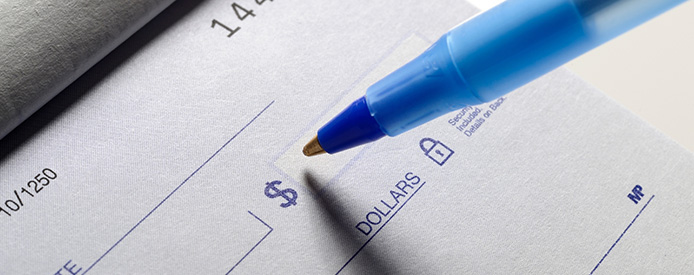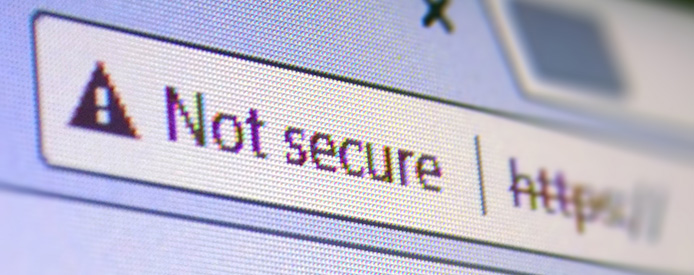
Types of Potential Check Scams
- Receiving overpayment for an item you placed for sale online
- Being notified that you have won a foreign lottery or sweepstakes
- Being notified that you are receiving an inheritance from a recently deceased, unknown relative that you have never heard of
- Unsolicited faxes, letters, or emails asking for an immediate response
- Being recruited to cash a check or money order to supposedly allow the transfer of funds to your account and being told that you can keep a percentage of the funds
Red flags for these types of scams
- Did you receive a check for something you sold online, or a service provided and were provided an overpayment and asked to return a portion of the funds?
- Were you asked to send a wire transfer by someone you have never met in person on behalf of someone you do not know?
- Did you receive a check and have no knowledge of or relationship with the maker/owner of the check?
- Did you receive funds for facilitating money transfers through your accounts?
- Have you been instructed to open a bank account for a job you received or by someone you are communicating with online?
Mystery Shopper Check Scams:
Mystery shopper scams use fraudulent offers, fake checks, and wire transfers to persuade consumers into sending money to thieves who are often located outside the U.S.
How do these scams operate?
A random source posts an ad or promotion looking to hire “mystery shoppers” in exchange for payment. These promotions can be in the form of letters, e-mails, text messages, or social media posts. After responding to the ad, the consumer will receive an “employment package” containing a fake cashier’s check. The victim will then be asked to deposit the check into their bank account, pose as a shopper, and then use wire transfers to send the balance of the check after purchases to an address usually outside of the U.S.
The risk is that the check is fraudulent, so when it bounces – usually after the money has been wired – the victim may be responsible for any financial losses. In some instances, victims are asked for personal bank account information so that the fraudulent company can deposit money into their account for payment, which is never received and increases the chance of identity theft significantly.
What can you do if you have already given your information to an unsolicited source?
If you do give your information unsuspectingly to a random source, notify and contact Bethpage Federal Credit Union immediately at (800) 628-7070 or visit your local Bethpage branch to close your accounts and open new accounts. You should also immediately change your passwords to protect your accounts.
Can Bethpage determine whether my check is good or bad?
No – Bethpage cannot determine whether the check will clear or not. Fraudsters today have access to technology that enables them to recreate checks that look legitimate. It is not always possible to distinguish a real check from a fake one. You should know who is giving you the check and they should be the owners of the account. Don’t accept checks from unknown sources.
What can you do to protect yourself?
- Never agree to open an account or use your account for someone you don’t know, trust, or have not met in person.
- Do not share your personal or financial information with anyone unless you initiated the contact and know that the contact is legitimate.
- If you are unsure whether a check is fraudulent, do not deposit it into your account. While a financial institution may initially accept the check, there is no guarantee that the check will not be returned. It can take days, weeks, or even longer, for a check to come back as fraudulent. Do not use those funds unless you are confident the check is legitimate. You are responsible for the checks you deposit.
- Refuse requests to send money to someone you do not know or have not known for a long time.
- Don’t accept a job that asks you to transfer money using your bank account.
- Never deposit a check you receive in the mail from a “mystery shopping” company. No legitimate business will pay in advance and ask you to send back a portion of the money.
Fraudsters are recruiting unsuspecting people to receive illicit funds from government programs, such as disaster relief payments from the Small Business Administration’s (SBA) Economic Injury Disaster Loan program and unemployment insurance payments from a state’s unemployment insurance program. The victims are frequently instructed to open an account at a financial institution (or to provide their current account information) to receive money. Upon receipt, the victims are instructed to transfer the money elsewhere and to keep a small portion for themselves.
Contact your local police department if you believe you have become a victim of fraud or have been in contact with someone who is trying to commit fraud.
- Categories:


